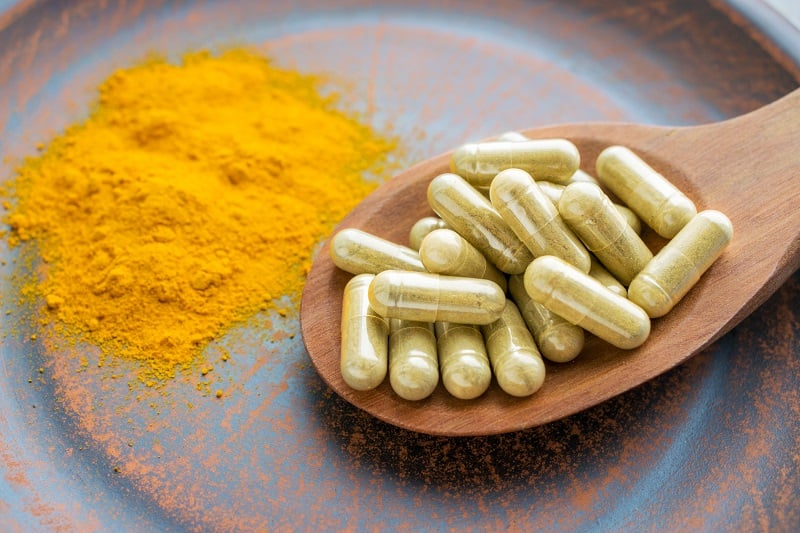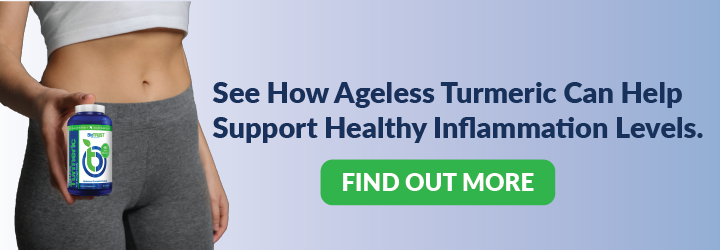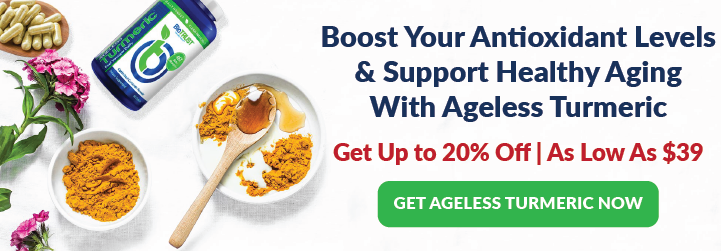8 Reasons You Should Be Taking a Turmeric Supplement

I’d like to start by addressing one thing first… supplements can be confusing. Between all the questions of what I should take, what I shouldn’t take, am I taking too much or am I taking too little, navigating your way through the supplement aisle can be challenging. Especially with so many products insisting that without their vital nutrients you are depriving your body of some worthwhile benefits. But if you strip it down and take away all the popular buzzwords and eye-grabbing packaging, we can begin to determine what supplements are really worth taking.
Among the handful of supplements that have become a no-brainer because of their real-world and scientifically-backed results, is turmeric. Now, before digging into why turmeric is one of the more valuable supplements out there, you may be thinking: Hasn’t turmeric in itself become a trend? The simple answer is no, although, in recent years, turmeric has become very fashionable in the wellness industry, turmeric is an ancient spice that has already proven it can stand the test of time.
Ancient Roots in Health and Wellness
You see, turmeric has long been recognized as a spice that can help promote many aspects health and wellness. Turmeric is made of the ground roots of the turmeric plant and is most commonly found sitting on spice shelves and as a key ingredient in many dishes worldwide. Yet, while turmeric has taken much of the credit and recognition, the majority of turmeric’s health benefits can be attributed to its active compounds known as curcuminoids.
Curcuminoids are active polyphenolic pigments such as curcumin. Due to extensive research, this compound has been shown to be extremely beneficial for producing desirable outcomes in the body.
Further, these healthful outcomes have sparked significant interest and fueled increased demand for turmeric, resulting in eight reasons why you should be taking a turmeric supplement.
LIMITED TIME OFFER: Get Ageless Turmeric, Our Highly-Bioavailable Turmeric & Ginger Supplement, As Low As $14
8 Reasons You Should Supplement with Turmeric
1. Brain Health
Studies have shown the compounds in turmeric may help promote brain health and cognitive function. This is because curcumin may help increase brain-derived neurotrophic factor (BDNF), which is a type of growth hormone that functions in your brain.1,2 BDNF aids in driving neurons to form new connections and multiply, thus supporting cognitive function, mood, and mental health.
2. Detoxification
Turmeric is known for its detoxification properties by enhancing your liver’s filtration system. Studies have shown that turmeric can increase the production of vital enzymes that are responsible for detoxifying our blood that goes to the liver by breaking down toxins. Additionally, it has been found that turmeric can significantly reduced lipid peroxidase, which in turn helps protect the liver from injury.3
3. Joint Health
Curcumin found in turmeric is widely recognized for its supportive effects on joint health. This is because curcumin may help support the body’s healthy inflammatory response, which may then assist the body in supporting joint health and potentially help reduce pain and discomfort as well as increase ease of movement.
4. Skin Health
A lesser-known advantage of turmeric is its skin-boosting benefits. Turmeric’s antioxidant and anti-inflammatory components may help rejuvenate and enhance skin radiance. Studies have found turmeric supplementation may brighten skin by promoting the natural health of the skin.4 Likewise, turmeric’s antioxidant compounds may significantly relieve sun damage because its antioxidant activity may prevent free radicals like pollution and UV rays from affecting skin elasticity. 5
BREAKING: Forget Taking Collagen, Try This 21-Second Trick for Healthier Skin & Hair Instead
5. Circulatory Health
Turmeric may lead to improvements in endothelial function, which is a major player in heart health. Endothelial cells release substances that “control vascular relaxation and contraction as well as enzymes that control blood clotting, immune function, and platelet adhesion.” Studies have shown curcumin may improve the age-related decline in endothelial function.6 Additionally, curcumin may help reduce oxidative stress resulting in endothelial dysfunction.7
6. Antibacterial Properties
Turmeric, specifically through curcumin, may also have strong antibacterial effects. Curcumin may help reduce the growth of many disease-causing bacteria. One review found that turmeric’s antibacterial properties were most promising in fighting against Helicobacter pylori (a bacteria that can infect the stomach) in combination with other existing medicines to decrease the symptoms.8
7. Balance Inflammation
Turmeric is most highly regarded for its capacity to promote a healthy inflammatory response. This appears to be because curcumin has been shown to target several key biomarkers associated with inflammation. Along these lines, curcumin has also been shown to target several pro-inflammatory mediators, including enzymes, transcription factors, cytokines, signal transducers, and more.9
8. Antioxidant Support
One of the biggest reasons in favor of a turmeric supplement is because it appears to serve as a powerful antioxidant. Not only may curcumin block free radicals directly, but it may also stimulate the body’s own antioxidant defenses by boosting the activity of its own antioxidant enzymes.10
Despite all the benefits, the effects of turmeric, like other food-based components, can be profoundly influenced by overall dietary and lifestyle patterns. So, when it comes to amplifying the advantages of turmeric, supplementation is best paired with healthy habits.
How to Choose the Right Turmeric Supplement
Nevertheless, it doesn’t go without saying that not all turmeric supplements are created equal, and not all forms of turmeric can produce beneficial effects. Meaning that when it comes to choosing a turmeric supplement, its crucial to know what to look for and how to pick the right one for you.
You see, although curcumin is the most abundant of turmeric’s curcuminoid complex, it makes up only about three percent of turmeric. So, while turmeric contains curcumin, it’s found in very small amounts, so to enjoy any benefit, substantial amounts of turmeric need to be consumed.
Even more, it is well-known that curcumin has poor absorption, biodistribution, metabolism, and bioavailability in the body.11 Since this is a recognized issue of turmeric and curcumin, certain strategies have been adapted to help the body take in more of the benefits.
The most popular technique is to combine curcumin with black pepper since a major component in black pepper is a compound called bioperine, which may increase the bioavailability.12 However, some researchers point out that curcumin, with black pepper, may not increase the absorption of curcumin in the body as much as originally hoped.13 Therefore, even with this popular approach, we may still not be able to gain the maximum benefit these compounds have to offer.
So, when it comes to choosing a turmeric supplement, its best to select a supplement containing the breakthrough curcumin formula CurcuWIN®.
CurcuWIN is a natural form of turmeric’s critical compound curcumin, combined with a hydrophilic carrier, cellulosic derivatives, and antioxidants. This means, unlike typical curcumin, CurcuWIN is water-soluble, making it more bioavailable, better absorbed, and longer lasting than other curcumin formulations.
In fact, in a randomized, double-blind crossover study, researchers found CurcuWIN to be 46 times more absorbable than standard curcumin mixtures.14 Importantly, this study was designed so participants could serve as their own controls, meaning a direct comparison could be made between the bioavailability of the curcumin ingredients tested within the same person.
A Better Turmeric Supplement?
By dramatically increasing absorption of turmeric and all its compounds, it becomes possible to heighten all the amazing and highly researched potential benefits of turmeric. So, with this in mind, it becomes clear that there is no better choice for a turmeric supplement than BioTRUST’s Ageless Turmeric.
Ageless Turmeric is an optimized curcumin supplement that supports an array or full body benefits. This is because by itself, CurcuWIN would be a winning formula, but in Ageless Turmeric, it is paired with another ancient botanical, ginger extract.
Ginger, of course, hails from the same family as turmeric, and much like turmeric, ginger has been used for thousands of years as a natural herbal remedy and documented in dozens of research studies. With this powerful combination of the highly-bioavailable turmeric supplement CurcuWIN and ginger extract, Ageless Turmeric is the best turmeric supplement you can find.







